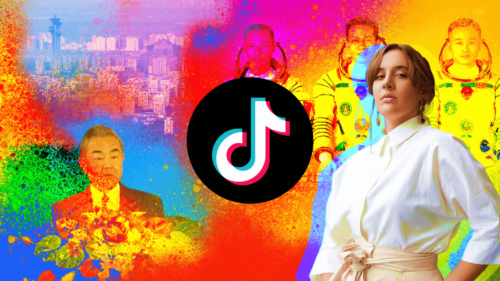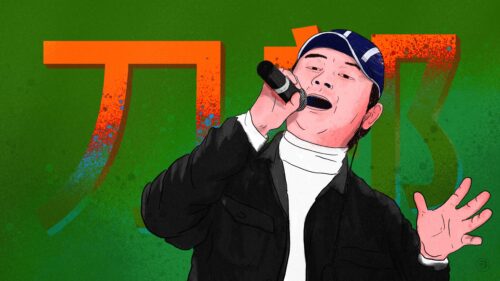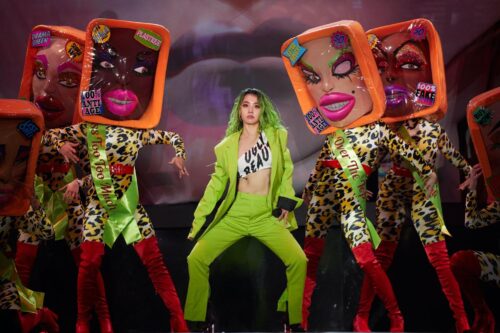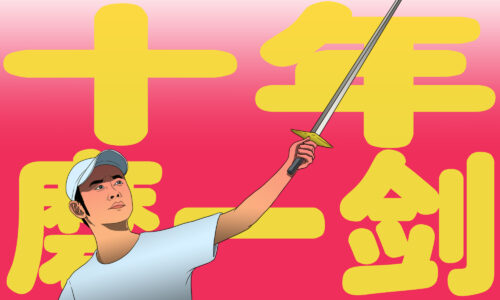The fate of music festivals in China’s current era of cultural nationalism
The founder of Shanghai-based festival Concrete & Grass reflects on 10 years of music festivals in China, and what the future might hold.
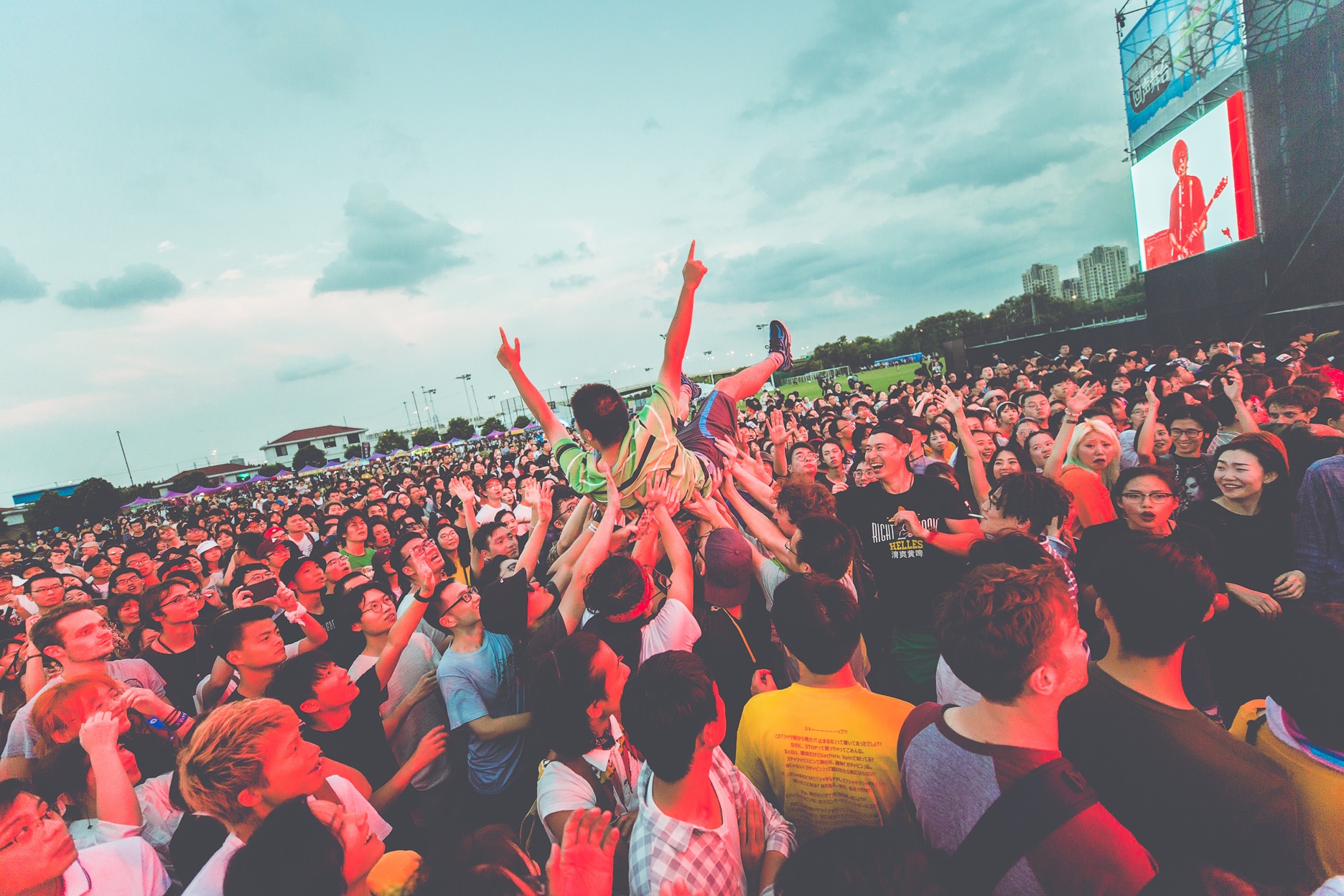
Ten years ago, the first large outdoor music festivals in China were built with jerry-rigged stages and borrowed sound stacks in a market that neither knew nor understood what these events meant.
Today, they’re so high-profile as to operate under the restrictive eye of the country’s censors and cultural bureaus, thought of as potential flash points for a young and restless generation to express disaffection.
In Xi Jinping’s new era of cultural nationalism, their status as a conduit between international contemporary culture and Chinese youth seems under threat. But as the appetite for music and “alternative” lifestyle trends swells, might China’s music festivals have a role to play yet?
Concrete & Grass 2017 marked my 10-year anniversary in the Chinese festival game. Alongside my partner, Nathaniel Davis, I’ve organized 14 festivals in China, including Black Rabbit, JUE | Music + Art, Wood + Wires, and Yue. When we started on this journey, every single person who knew anything about China told us there was no chance, that the fundamentals for a music festival would not be acceptable here, that there was no market for music and buying tickets, etc. Ten years later, music festivals have become (very) big business, so much so that our industry now operates firmly under a microscope.
In the Age of Xi, we are pressured to ask: Do music festivals promote the values of a “harmonious society”? Aren’t large-scale events dangerous? Are Western artists and influences good for young, impressionable Chinese minds?
To understand the present (and the future), we need to take a trip down history lane.
In 2007, as organizers of the fledgling Yue Festival, we were breathing rarefied air — the rock-and-metal-heavy Midi and jazz-focused JZ were pretty much the only other festivals in China. Modern Sky, which now holds an annual music festival in New York, started its festival empire on the very same day that we ran our first festival (October 3). The EDM progenitor Storm Festival was still six years from its inception. There were no Chinese social media communities, no streaming music sites, no livehouses (except the now-iconic Beijing venue Mao Livehouse, which had just opened); there were no shared bikes, only two subway lines in Beijing, no Mercedes-Benz or Wukesong arenas. China in 2007 was a very different place from the frenzied WeChat-heavy mobile society it is today.
My favorite photo from that era depicts these Shanghai old-timers turning up at their regular morning park to find that giant stages and sound systems had appeared overnight:

In 2007, we were a bunch of crazies operating at the fringes of society. There was no real official recognition or understanding that festivals were actually a thing, and certainly not something that would or could influence a generation of Chinese kids. We were doing deals with public spaces in city centers (like Zhongshan Park in Shanghai), we were erecting jerry-rigged stages with club speakers and minimal lighting (proof in the video below), and we were working with artists who had only ever played in dive bars with capacities in the low hundreds, rather than on stages that often faced thousands of interested young people.
Then, in 2008, Bjork shouted, “Tibet! Tibet!” at a concert in Shanghai, thereby screwing things up for everyone. The regulatory landscape for music changed indelibly. Authorities doubled down on a cumbersome permit and approval process for foreign bands that remains in place to this day.
In the short term, this forced festivals to look inward for programming. The first big expansion came in 2009, when the city of Zhengzhou, Henan Province, asked the Midi Festival to set up a branch of its renowned event there. The relative success of the Changjiang Midi Festival (which subsequently became the Changjiang Strawberry Festival — the local funders decided after two successful years that Midi’s rival, Strawberry, was a better pairing) set off a chain reaction that had every local government in the land seeking to burnish its tourism credentials by having a nationally recognized event come to their hood. Places as far afield as Rizhao (Shandong) and as near as Pingwu (suburban Shanghai) soon had their own festival outposts. The Midi and Strawberry festivals made hay. These two in particular deserved their rewards, as they had gone through countless tribulations: last-minute venue changes, entire cancellations, losses of alcohol licenses, unforeseen blanket bans on international artists… they weathered it all, and achieved household recognition as a result.
Scandals like the institutionalized scam that was the Love Festival in Mianyang, Sichuan Province, plus the anti-corruption drive from 2012, put a stop to much of the increasingly frivolous and narcissistic government spending on big music events. Investment had to come from other places — and it did. The Storm EDM Festival — a joint venture between a media entrepreneur and a venture capitalist — promised to bring international EDM to China, while Modern Sky raised increasing amounts. Suddenly, festivals were a good way to get rich quick. Add this to the restricted outbound investment climate, and it seemed like there was a bright and shiny new mega-event every weekend during festival season across China. In Shanghai, the festival landscape increased tenfold to about 50 festivals by 2016. (This is in stark contrast to Beijing — after experimenting with a zero-alcohol policy for a couple of years, Beijing closed all festival business in 2015; there hasn’t been a major music festival in the municipal area of the capital since then.)

So what does this mean?
Like many other parts of the ex-gray economy, there are relatively few secrets left surrounding festivals. It is now commonly known that they can be big, that they can be influential, that they encourage individuals to think for themselves, make choices for themselves, and join hands with like-minded souls for (to the outsider) relatively bacchanalian rituals and celebrations. The business of organizing large-scale festivals in China has become more difficult precisely because they have turned into commercial commodities.
Safety issues around international festivals are a real consideration as well — the shooting in Las Vegas, for instance, has raised hackles. Overseers, who are traditionally ultra-conservative, have smartened up to the excesses and potential political dangers of large-scale gatherings. From Justin Bieber to Korean sopranos to ’90s alt-rock band Placebo, the list of international artists not welcome in China has expanded exponentially. China allowed itself a brief flirtation with the international festival scene, but it’s sobering up to what that actually entails. Only a few weeks ago, Shanghai’s Simple Life had its capacity restricted to less than a third of what was previously agreed upon (apparently after capacity concerns at the first Ultra Festival on the same Expo Park site). It makes it very difficult to run a business centered on a time-sensitive and multimillion-dollar weekend event when there are so many external concerns. In most places, weather is the biggest bugaboo for festival organizers. In China, it’s weather plus a dozen other things.
Those “dozen other things” include some rather surreal China idiosyncrasies. Hefty bands of ticket scalpers go to insane lengths to forge tickets (we’ve had staff attacked, offices broken into, venues vandalized, all for fake tickets). A pay-to-play local media will pointedly ignore you unless “influenced” with freebies (or cash-stuffed red envelopes). Trigger-happy security will freak out at the tamest moshpits and attempt to wrangle harmless photography drones to the ground.
So what can be done? Is there a way to align socialist ideals with the energy, diversity, and general encouraged chaos of the music festival (and more broadly, music) industry?
As we are in China, the solution is, of course, somewhat of a fudge. We need to be responsible stewards of our industry, not pushing too far or fast (30-year-old me would have hated the 40-year-old me). Some think the government is hampering progress, but the truth is, to get business done in China, you have to create solid relationships with local governments and the police. Of course, to remain relevant, we need to keep pushing at the boundaries from a content perspective (a process that often involves some clever sleights of hand). Part of the challenge is to offer a mix of international and local music, a proposition that grows difficult (logistically, financially, politically) with every passing year, and requires a careful ear to the ground to watch for ideological rumbles. For a number of reasons, music from South Korea suddenly went off-limits in 2016, and similar blanket bans have existed in the past against Japan and Norway. But we always need to remain cognizant of the fact that less than 15 years ago, it was illegal to hold any kind of public gathering in China. If you think about it in that context, the authorities have actually adapted rather well.
Is there a future for music festivals in China? I am obviously biased and heavily invested, but I believe yes. There already is and will continue to be a big shakeout of companies and events — there were simply too many this year and last, many with poorly thought-out business plans and a lack of differentiation. Every few years, successful industry segments get a whole host of these copycat businesses, but the strong (and committed) tend to survive, and enter the next period in stronger shape. I believe that we are at such a transition point. Many of 2016’s bigger new entrants didn’t return for 2017. The same will happen as 2017 gives way to 2018.
That leaves us with the political outlook. The 19th National Party Congress was largely silent on matters of music, but the new five-year plan does not, it appears, make it harder for music promoters to operate. That means — for now — we’re here to stay.

